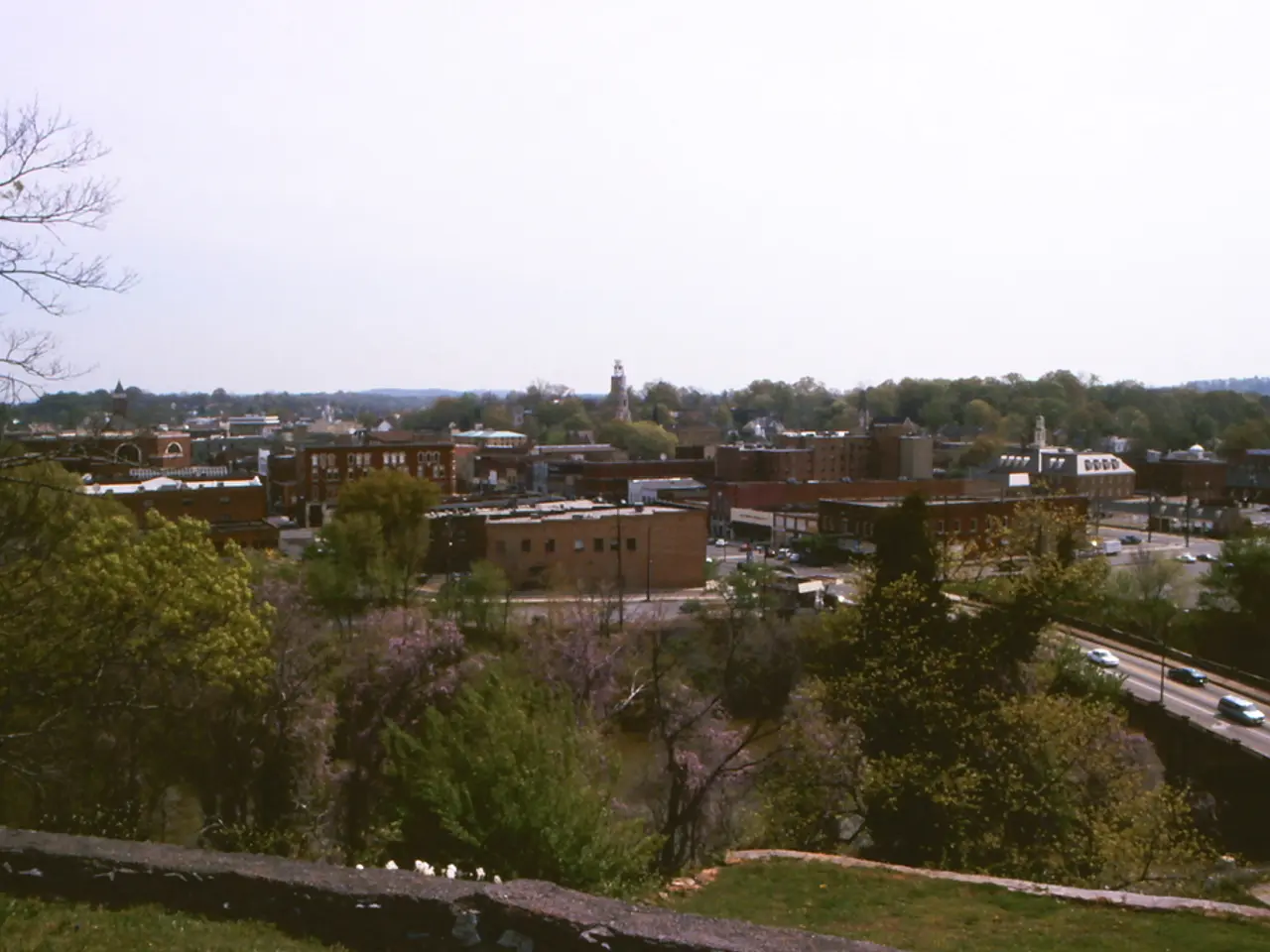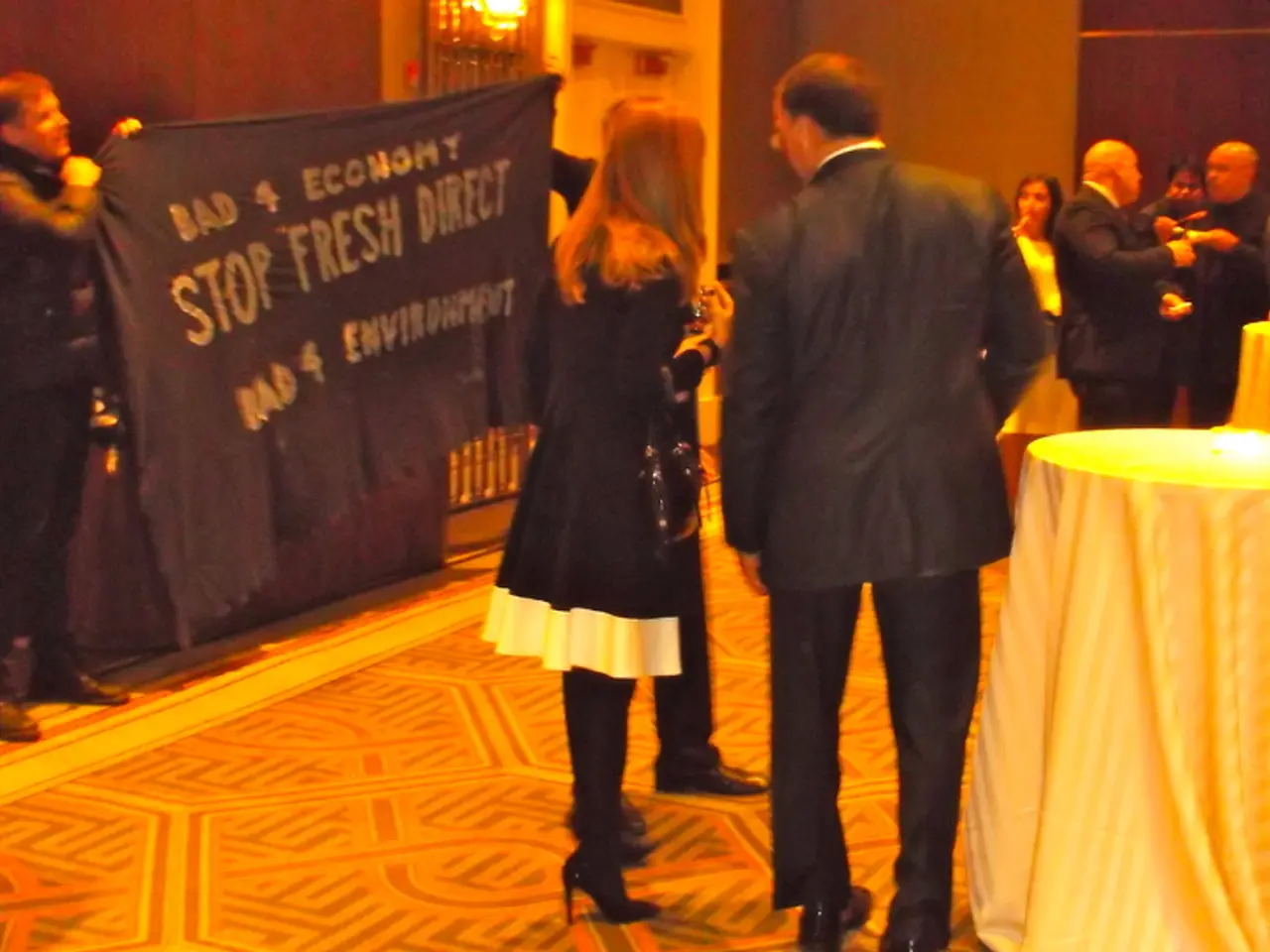Unite the scientific assembly within the community meeting!
Getting Municipalities and Science on the Same Page: The Power of Municipal Scientific Councils
Considering the diverse nature of Quebec's municipalities, it's crucial that decision-makers are equipped with scientific expertise that aligns with their unique contexts. The duo of Quebec's chief scientist and Victoriaville's mayor propose the formation of Municipal Scientific Councils to help decision-makers navigate complex issues.
Territorial differences are a significant factor in public decision-making in Quebec. With over 1100 municipalities, each one brings its culture, priorities, and challenges to the table. However, numerous municipalities make decisions without easy access to tailored scientific expertise that suits their environment.
In a world bombarded with information, it's important to bridge the gap between urban politics and science. This begins with science accessible in French, understandable for elected officials, and suited to their reality. That's why, before the upcoming municipal elections, we encourage candidates to integrate the creation of Municipal Scientific Councils into their program.
Municipalities are at the forefront of current issues like climate change, public health, territorial planning, and more. Elected officials at the municipal level often face the daunting task of navigating informational chaos without a solid scientific safety net. This is why Victoriaville gave birth to the first Municipal Scientific Council, an innovative initiative that localizes sustainable development objectives and implements them practically on the ground.
These Municipal Chief Scientific Advisors are neither technocrats nor activists; they are science brokers and connectors. Equipped with rich scientific training and a wide network of experts, they serve as a simple, adaptable solution for municipalities of varying sizes and locations. Their goal? To provide solid, independent, and practical advice at the highest level of decision-making within cities.
The Municipal Scientific Advisor in Victoriaville represents a new face of local scientific diplomacy, structuring a municipal strategy for achieving sustainable development objectives, establishing new circular economy markets, embedding resilience in local policies, and rallying elected officials, civil servants, and citizen communities around wiser decisions.
In essence, they enable innovation on the ground, allowing for different governance practices.
Since Victoriaville paved the way, the movement has grown: Longueuil, Gatineau, Sorel-Tracy, Drummondville, the Montreal Metropolitan Community, Mirabel, Salaberry-de-Valleyfield, Sainte-Marthe, and Contrecoeur have all followed suit.
In support of this momentum, the Quebec Research Fund has initiated the Table of Municipal Scientific Advisors, a collaborative space enabling these field experts to share promising practices and work together.
By 2025, let's say that governing without the boost of science is comparable to acting blindly.
We invite candidates to seize this election period to express their willingness to better equip municipal governance by exploring the prospect of establishing, in their city, a scientific council tailored to their specific context.
Insights- Forging connections between policymakers and experts from various fields helps municipalities address complex challenges that surpass their internal capabilities.- Collaborations with research institutions and applied research centers promote applied scientific knowledge to drive sustainable resource use and territorial management.- Platforms facilitating ongoing dialogue between policymakers and scientists ensure decisions remain informed by the latest scientific developments.- Aligning municipal policies with science-based recommendations at higher government levels bolsters scientific expertise available at the provincial and federal level.
Key Examples- The Alliance of municipalities of Petite-Nation Nord formed a committee of independent experts to advise on a complex mining project, providing multidisciplinary knowledge and transparency.- CRABE, co-founded by Habitat and the Université du Québec en Outaouais, is an applied research center that integrates various stakeholders to ensure research is relevant and accessible for decision-makers at various levels, including municipalities.- Programs like AI Insights for Policymakers from Mila facilitate timely interactions between scientists and policymakers, ensuring decisions are informed by the latest scientific understanding in emerging fields.
- To address the diverse and complex issues faced by Quebec's municipalities, such as climate change and territorial planning, candidates should consider incorporating the formation of Municipal Scientific Councils into their election platforms, enabling municipalities to capitalize on essential scientific expertise that suits their unique contexts.
- With the increasing emphasis on science-driven policies, it is vital for municipalities to establish collaborative relationships with environmental-science and policy-and-legislation experts, permitting them to remain informed about the latest developments in areas like sustainable development objectives and circular economy markets.
- In addition to facilitating dialogues between policymakers and scientists, municipalities should forge alliances with research institutions and applied research centers, enhancing their abilities to implement practical, science-based solutions and efficient resource use, ultimately benefiting both the environment and their communities.






